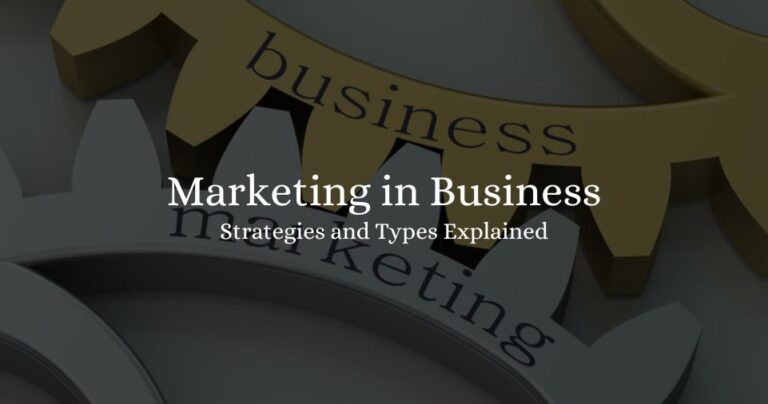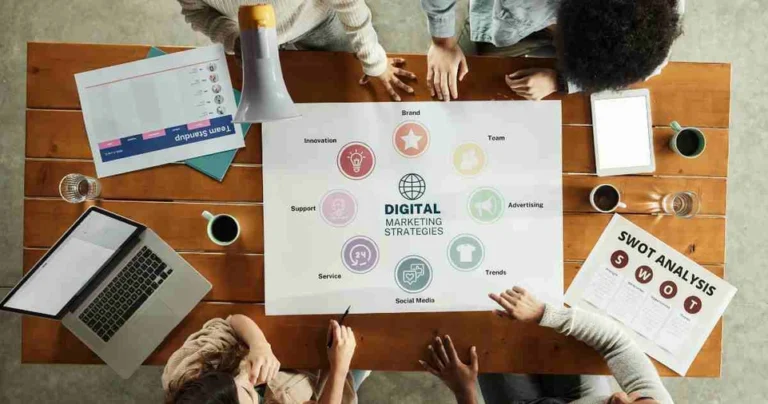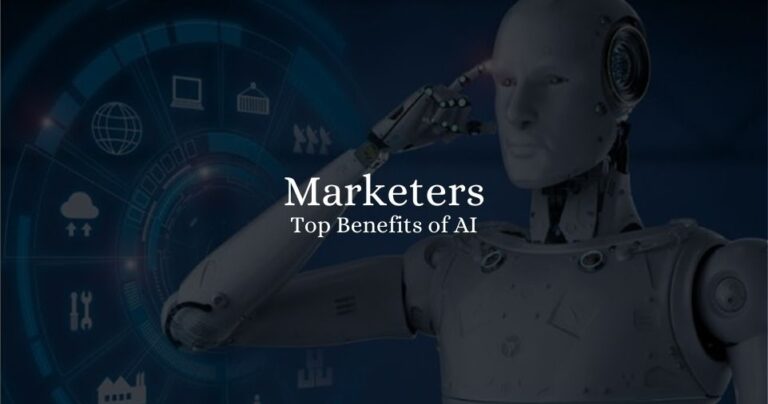New Marketing Jobs That Could Focus on AI 2023
Are you a marketing professional looking to stay ahead in the ever-evolving world of digital marketing? The landscape is constantly shifting, and traditional marketing roles are expanding to embrace the power of Artificial Intelligence (AI). In this blog post, we will explore the emergence of new marketing jobs that specifically focus on AI and how they can revolutionize the way marketers strategize, execute, and analyze campaigns. Whether you’re a seasoned marketer or just starting your career, get ready to discover the exciting possibilities and opportunities that lie in the intersection of marketing and AI.
The Rise of AI in Marketing
A. AI’s impact on marketing strategies and campaigns
The world of marketing is evolving at a rapid pace, and one of the key driving forces behind this transformation is the rise of artificial intelligence (AI). AI has significantly impacted marketing strategies and campaigns, revolutionizing the way businesses connect with their target audiences. With AI, marketers can now analyze vast amounts of data to gain valuable insights into consumer behavior, preferences, and trends. This enables them to create more targeted and personalized campaigns that resonate with their customers.
For example, AI-powered chatbots have become increasingly popular in customer service. These intelligent bots can engage with customers in real-time, answer their queries, and even make product recommendations based on their preferences. By leveraging AI, companies can provide a seamless and personalized experience to their customers, enhancing customer satisfaction and driving conversions.
B. Integration of AI technologies in marketing automation
Another area where AI has made a significant impact is marketing automation. AI technologies have revolutionized the way marketers automate repetitive tasks and streamline their workflows. With AI-powered automation tools, marketers can now handle complex tasks such as lead scoring, email marketing, and social media scheduling more efficiently and effectively
For instance, AI algorithms can analyze customer data and behavior patterns to identify high-potential leads, allowing marketers to prioritize their efforts and focus on prospects that are most likely to convert. This not only saves time and resources but also improves the overall effectiveness of marketing campaigns.
C. The need for specialized roles to maximize AI’s potential
As AI continues to shape the marketing landscape, there is a growing demand for professionals who possess the knowledge and skills to leverage AI effectively. To maximize AI’s potential, companies are seeking specialized roles that bridge the gap between marketing and technology.
For example, AI Strategists are responsible for crafting AI-driven marketing strategies and roadmaps. They understand how AI can be integrated into various marketing initiatives and develop plans to leverage its capabilities. AI Analysts, on the other hand, are experts in utilizing AI tools for data analysis and insights. They work with large datasets, identify patterns and trends, and provide valuable recommendations to optimize marketing campaigns.
In addition to these roles, AI Content Marketers play a crucial role in creating AI-generated content and optimizing it for AI algorithms. They understand how to harness the power of AI to generate engaging and relevant content that resonates with both search engines and human readers.
By having specialized roles dedicated to AI-focused marketing, companies can unlock the full potential of AI and stay ahead in this rapidly evolving landscape.
Overall, the rise of AI in marketing has transformed the way businesses approach their strategies and campaigns. By leveraging AI technologies, marketers can gain valuable insights, automate repetitive tasks, and create more personalized experiences for their customers. The integration of AI in marketing has created exciting new opportunities, leading to the emergence of specialized roles that are essential in maximizing the potential of AI. In the following sections, we will explore some of these new marketing jobs in AI and the skills required to excel in these roles.
Exploring New Marketing Jobs in AI
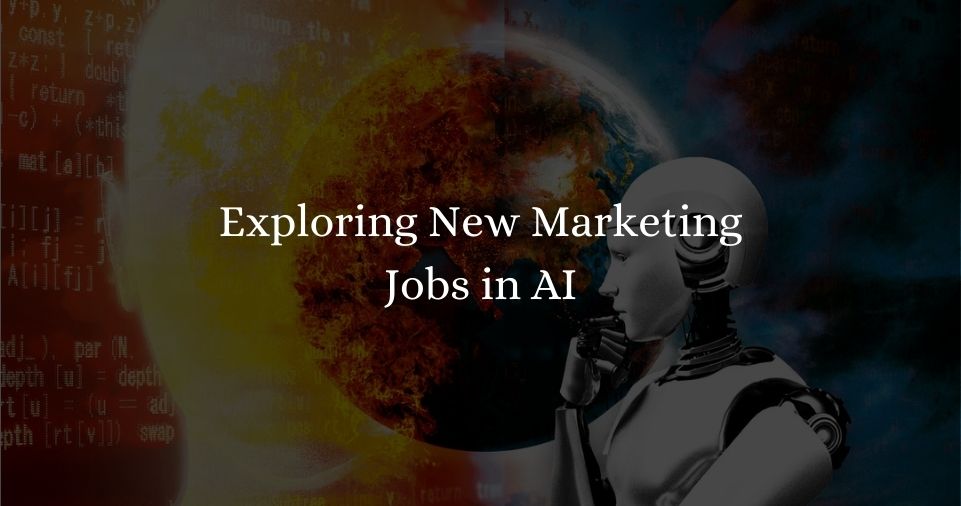
As the field of marketing embraces the power of AI, exciting new job opportunities have emerged for professionals who are adept at leveraging this technology. Let’s explore some of the new marketing roles that have become essential in the age of AI.
A. AI Strategist: Crafting AI-driven marketing strategies and roadmaps
In the realm of AI-focused marketing, AI Strategists play a crucial role in developing and implementing effective strategies that harness the potential of AI. These strategists possess a deep understanding of AI technologies and how they can be integrated into marketing initiatives. They work closely with the marketing team to identify opportunities where AI can enhance performance and drive better results.
For example, an AI Strategist might identify the need to implement AI-powered chatbots to improve customer support and engagement. They would develop a roadmap for the implementation and work with the technical team to ensure seamless integration. By crafting AI-driven marketing strategies, AI Strategists help businesses stay ahead of the competition and make the most out of AI technologies
B. AI Analyst: Leveraging AI tools for data analysis and insights
In the era of big data, AI Analysts are in high demand to help marketers extract valuable insights from vast amounts of data. These professionals possess a strong background in data analysis and have a deep understanding of AI tools and algorithms. They are skilled at using AI technologies to analyze customer behavior, market trends, and campaign performance.
For instance, an AI Analyst might utilize machine learning algorithms to identify patterns in customer data and predict future buying behavior. They can also uncover hidden correlations and insights that might go unnoticed with traditional analytical methods. By leveraging AI tools for data analysis and insights, AI Analysts empower marketers to make data-driven decisions and optimize their marketing efforts.
C. AI Content Marketer: Creating AI-generated content and optimizing for AI algorithms
With the rise of AI, the role of Content Marketers has expanded to include AI-generated content creation and optimization. AI Content Marketers are skilled at utilizing AI technologies to produce engaging and relevant content that resonates with both search engines and human readers. They understand how to optimize content for AI algorithms, ensuring it ranks high in search results and reaches the target audience effectively.
For example, an AI Content Marketer might utilize natural language generation (NLG) tools to automate the creation of product descriptions or blog articles. They can also leverage AI-powered content recommendation engines to personalize content recommendations based on user preferences. By harnessing the capabilities of AI, AI Content Marketers can enhance content production, improve SEO, and deliver a more personalized experience to the audience.
By exploring these new marketing jobs in AI, professionals can unlock exciting career opportunities and contribute to the advancement of the field. The next section will delve into the skills and qualifications required to excel in AI-focused marketing roles.
Skills and Qualifications for AI-focused Marketing Roles
To excel in the new marketing jobs centered around AI, it is crucial to possess the right skills and qualifications. Let’s explore the key competencies required to thrive in AI-focused marketing roles.
A. Technical skills: Understanding AI technologies and tools
In the rapidly evolving landscape of AI-driven marketing, having a solid understanding of AI technologies and tools is essential. Familiarity with concepts like machine learning, natural language processing (NLP), and predictive analytics is highly beneficial. Additionally, proficiency in using AI tools and platforms such as TensorFlow, Python, or IBM Watson can give you a competitive edge.
For example, as an AI Strategist, you should be knowledgeable about the different AI models and algorithms available and how they can be applied to various marketing scenarios. Understanding the technical aspects of AI empowers you to make informed decisions and effectively leverage AI capabilities.
B. Data literacy: Proficiency in data analysis and interpretation
Data is the foundation of AI-powered marketing. To succeed in AI-focused roles, you need to be data-literate and skilled in analyzing and interpreting data. This includes the ability to work with large datasets, apply statistical analysis, and derive actionable insights.
For instance, as an AI Analyst, you should be comfortable working with data mining techniques and applying machine learning algorithms to extract meaningful patterns from data. Proficiency in data visualization tools like Tableau or Power BI is also valuable for presenting insights in a clear and compelling manner.
C. Creative thinking: Blending AI capabilities with human creativity
While AI brings immense capabilities to marketing, the human touch of creativity remains invaluable. The ability to think creatively and creatively integrate AI into marketing strategies is essential. This involves understanding the strengths and limitations of AI and leveraging it to enhance human creativity.
For instance, as an AI Content Marketer, you must find the balance between utilizing AI-generated content and infusing it with unique human insights and perspectives. You can use AI-powered tools to generate content outlines or analyze keywords, but your creativity comes into play when shaping the narrative and crafting engaging stories.
By honing these skills—technical proficiency, data literacy, and creative thinking—you can position yourself as a valuable asset in the field of AI-focused marketing.
Navigating the Future of AI in Marketing
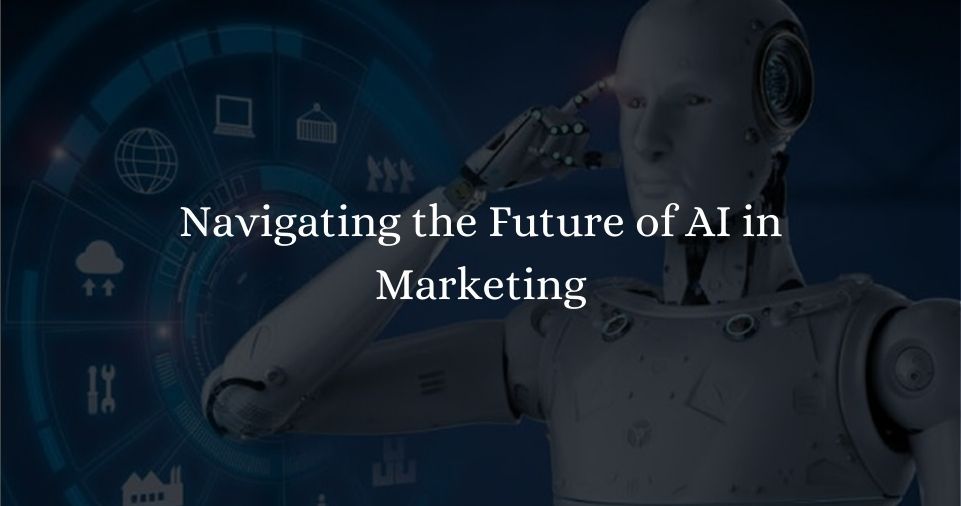
As AI continues to reshape the marketing landscape, it is essential to navigate the future with a forward-thinking mindset. Here are key strategies for staying relevant and harnessing the potential of AI in marketing.
A. Continuous learning and upskilling to stay relevant
The field of AI is ever-evolving, and staying up to date with the latest trends, technologies, and best practices is crucial. Invest in continuous learning, attend industry conferences, enroll in online courses, and join professional communities to expand your knowledge and skills.
B. Embracing the collaboration between humans and AI
Rather than viewing AI as a threat, embrace it as a powerful ally. Understand that the best outcomes in marketing are achieved when humans and AI collaborate. AI can automate repetitive tasks, analyze vast amounts of data, and provide insights, while humans bring creativity, empathy, and strategic thinking to the table.
C. The potential of AI to create new marketing opportunities
Lastly, recognize the potential of AI to revolutionize marketing. As AI technologies advance, new opportunities will emerge. Stay curious and explore how AI can create innovative marketing solutions, improve customer experiences, and uncover hidden insights.
By mastering the necessary skills, adapting to the evolving landscape, and embracing the collaboration between humans and AI, you can unlock the full potential of AI in marketing and seize the exciting opportunities that lie ahead.
Also Read: Making Your Marketing Strategy Work Effective Ways 2023
Conclusion
In conclusion, the rise of AI in marketing has brought about significant changes, creating new and exciting job opportunities for professionals in the field. AI’s impact on marketing strategies and campaigns, as well as its integration into marketing automation, has revolutionized the way businesses connect with their audiences. Specialized roles like AI Strategists, AI Analysts, and AI Content Marketers have become essential in maximizing AI’s potential and driving success in AI-driven marketing initiatives.
To excel in these roles, acquiring the right skills and qualifications is paramount. Technical skills, data literacy, and creative thinking are crucial for leveraging AI technologies effectively. By staying up-to-date with the latest trends and continuously upskilling, you can position yourself as a valuable asset in the field of AI-focused marketing.
While there are numerous benefits to AI-focused marketing jobs, such as enhanced efficiency, improved targeting, and personalization, it’s important to be mindful of the challenges and ethical considerations that arise with the collaboration between humans and AI. Striking the right balance between human creativity and AI capabilities is key to leveraging the full potential of AI in marketing.
As you navigate the future of AI in marketing, remember to embrace collaboration between humans and AI, as well as the endless opportunities that AI presents. The field of AI in marketing is continuously evolving, offering a world of possibilities for those willing to explore and innovate. By embracing these new marketing jobs and leveraging the power of AI, you can shape the future of marketing and make a significant impact in the industry.
FAQs
Q: What are the key skills needed for AI-focused marketing roles?
A: The key skills for AI-focused marketing roles include technical proficiency in AI technologies and tools, data literacy for effective data analysis and interpretation, and creative thinking to blend AI capabilities with human creativity.
Q: What are the benefits of AI-focused marketing jobs?
A: AI-focused marketing jobs offer enhanced efficiency and productivity through AI automation, improved targeting and personalization for better customer experiences, and the potential to uncover valuable insights from large datasets.
Q: How can I stay relevant in the field of AI-focused marketing?
A: To stay relevant, it is essential to continuously learn and upskill yourself by staying updated with the latest trends, attending industry conferences, and enrolling in online courses. Embrace the collaboration between humans and AI and explore the potential of AI to create new marketing opportunities.
Q: What are the ethical considerations in AI-focused marketing jobs?
A: Ethical considerations in AI-focused marketing include ensuring transparency and fairness in AI algorithms, protecting user privacy and data, and maintaining human oversight in decision-making processes involving AI.
Q: What is the future of AI in marketing careers?
A: The future of AI in marketing careers is bright and promising. As AI technologies continue to advance, new opportunities will emerge, and AI will play an increasingly vital role in marketing strategies and campaigns. By embracing AI and continuously adapting to the evolving landscape, you can shape a successful and fulfilling career in AI-focused marketing.


